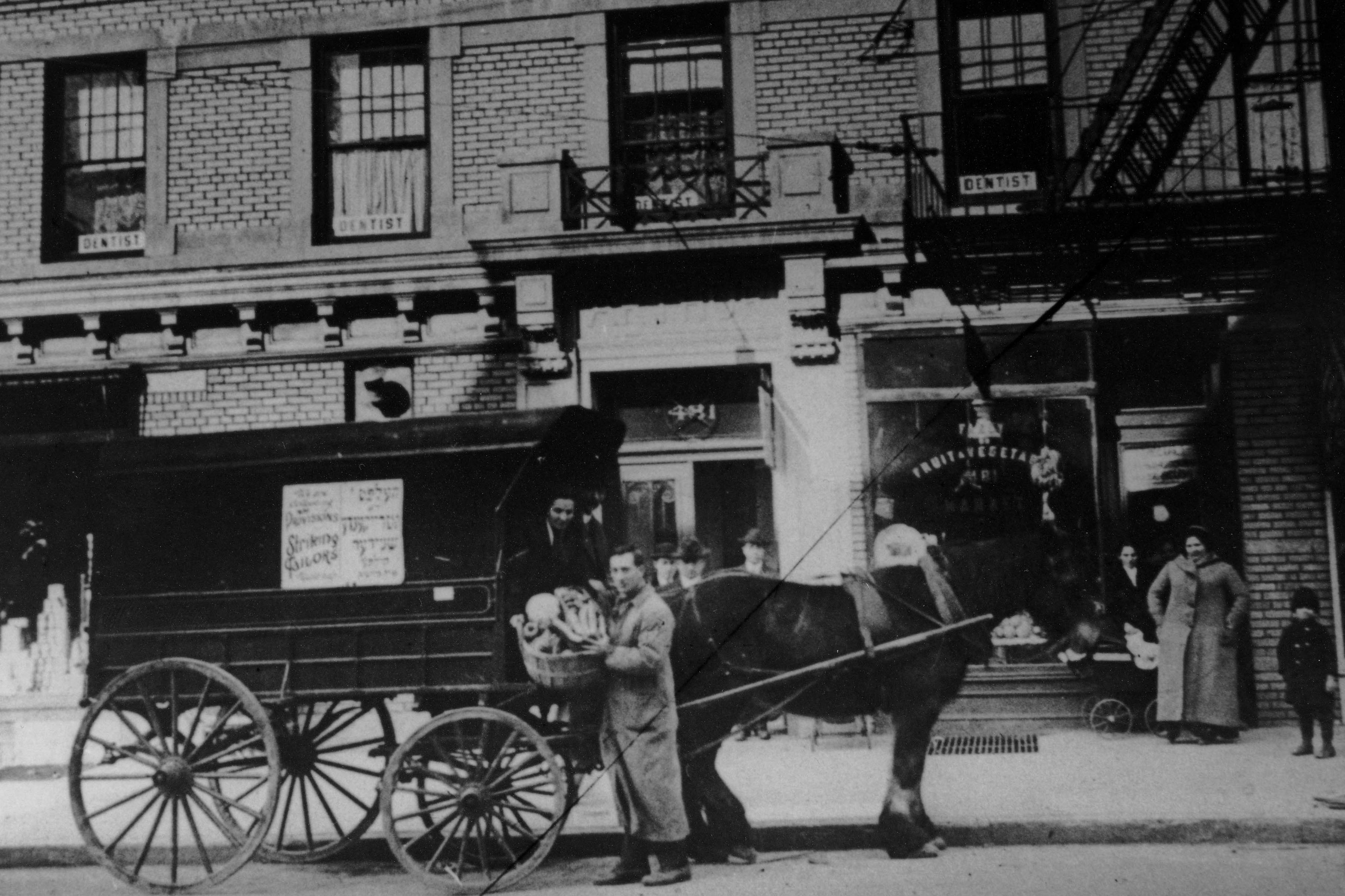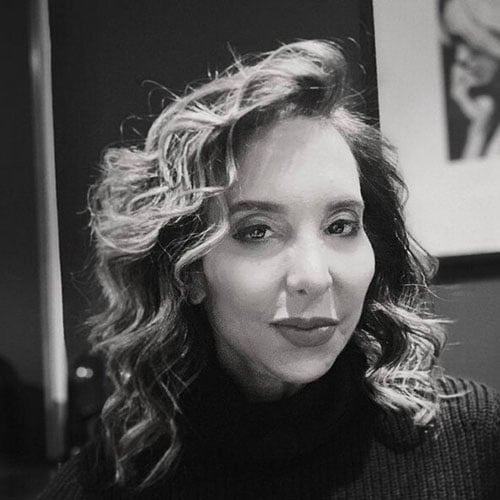
I’m looking at a torn photo of my mother as a toddler, being held by her father. On the back, someone had scrawled 1938. I keep staring at the photo because it is unusually somber, poignantly capturing the mood of the era.
One should be careful, of course, not to read too much into old photos, especially when the year is associated with both economic destitution and the nightmare of Kristallnacht. But I was looking through some old photos to get a sense of the lives of my four Russian grandparents, and though this one stands out, it, too, tells part of the story.
For the most part, the photos reflect what I remember as a child. They emit what could be called “working-class grateful.” My maternal grandfather started at Ford as a mechanic and ended up with his own gas station, Aba’s Garage in Woodbine, N.J. In most photos, he’s covered in grease but with a smile that always seemed to light up the world.
My Uncle Moe drove a kosher meat truck; I still have the bell that he would ring in front of each house. My paternal grandfather worked in a factory in Philadelphia until he was able to start his own ironing board company. A natural, dignified work ethic permeated their lives; complaints fell into the realm of comedy.
Living in New York City, one comes into contact with innumerable cultures on an hourly basis. Not coincidentally, the same natural work ethic and pride prevail. And it is precisely this fusion of cultures and achievement that gives the city its unique creative energy.
Today’s national conversation about immigration is, in a word, revolting. One side seems to have forgotten that immigrants built this country. The other side seems oblivious to the depths of their own hypocrisy: They shout “privilege” with soulless abandon while offering up a laundry list of entitlements.
It is in fact this sense of entitlement that I find most annoying about Alexandria Ocasio-Cortez, the 28-year-old who just won the Democratic primary to represent a chunk of the Bronx and Queens. And for a socialist millennial who calls Hamas terrorists “civil rights activists,” there are many annoyances to choose from. The government, Ocasio-Cortez demands, must do x, y and z for her community.
Today’s national conversation about immigration is, in a word, revolting.
I wonder what my grandparents would think of the identity politics game that Ocasio-Cortez manipulates so well. They often “passed” as white, yes, but apparently not a week would go by when someone wouldn’t remind them that they were in fact not white. Given the pogroms and the Holocaust, this was, as my dad used to say, small potatoes.
It is precisely this perspective that is so sorely lacking from this new face of the Democratic Party: Generation Entitlement. Real racism, of course, still exists. But where it doesn’t exist, the left’s answer is: Make it up! Often at the expense of people whose families were slaughtered for being Jewish less than 75 years ago.
My grandparents never took their freedom for granted. And in exchange for that freedom, they wanted to give back to this country in any way they could. It was anti-entitlement, the embodiment of John F. Kennedy’s words: “Ask not what your country can do for you; ask what you can do for your country.”
Much of this came from a well-tended Jewish soul, but it also came from a vision of what it meant to be an American. I find it hard to believe that the hard-working residents of the Bronx and Queens fully understand the game Ocasio-Cortez is playing — and would be horrified if they did.
Maybe, as intersectional leftists now say, I should “stay in my lane” — talk only about my own peeps. OK. Then I would like to ask Ocasio-Cortez to do the same. The next time she tweets kisses to Hamas — showing that her knowledge of foreign affairs is even less informed than her knowledge of economics — she should be told to stick to her specialty: identity politics.
My grandparents came here with nothing, fleeing persecution, and made this country a better place. They weren’t white and they weren’t privileged — except in one respect: They understood how lucky they were to be on land that honored freedom. Not for one day did they take that freedom for granted; that is the only sense of entitlement that I will pass on to my son.
Karen Lehrman Bloch is an author and cultural critic living in New York.





















 More news and opinions than at a Shabbat dinner, right in your inbox.
More news and opinions than at a Shabbat dinner, right in your inbox.